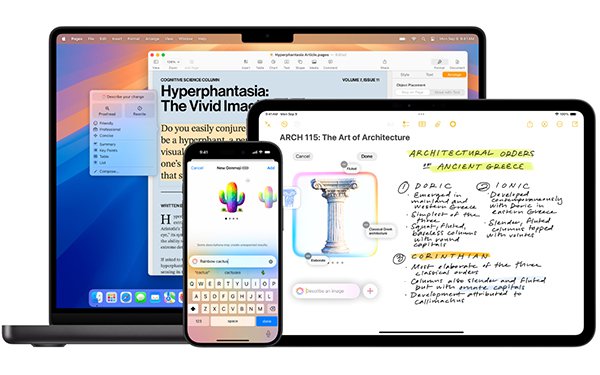
Apple has integrated its voice assistant on its iPhone and other
devices with OpenAI’s artificial intelligence, as part of a series of updates announced by the tech giant Wednesday.
The more interesting part of the announcement is what these types of
integrations may or may not mean for consumer data as more companies with AI services integrate with others.
For Apple, today’s announcement relates to iOS 18.2, iPadOS 18.2, and macOS
Sequoia 15.2, as well as a new set of Apple Intelligence features for iPhone, iPad, and Mac.
ChatGPT has been integrated into Writing Tools and Siri, so users can tap
OpenAI's technology without having to switch between apps.
Apple and OpenAI announced the partnership in June.
The integration features a visual intelligence experience through
Camera Control on iPhone 16s. Visual intelligence can summarize and copy text, translate text between languages, detect phone numbers or email addresses with the option to add to contacts, and
more.
advertisement
advertisement
It also allows users to search Google to learn where they can buy an item or use ChatGPT to ask for an explanation about a complex diagram, such as from class notes.
Apple says
users remain in control of when third-party tools are used and what information is shared.
CNET ran a study with YouGov surveying 2,484 adults, including 2,387
smartphone owners. The online survey -- fielded from August 28-30, 2024 -- found that one-quarter of smartphone owners don't find AI features helpful, while 45% are reluctant to pay a monthly
subscription fee for AI capabilities and 34% have privacy concerns.
The use of ChatGPT no doubt allows OpenAI's technology to learn from each keystroke and word. When users continue to have a
conversation with ChatGPT, that means OpenAI is able to process users’ data.
OpenAI’s privacy policy was
updated on November 4, 2024.
The updated policies give OpenAI access to a user’s general location through an IP address, as well as browser type and settings, the date and time of the
request, time zone, country, device information, and more.
Words and images give ChatGPT a better understanding of human behavior. OpenAI states that some of its services allow
users to choose to provide more precise location information from their device.
However, users can choose whether to enable ChatGPT integration and are in full control of when to use it and
what information is shared.
When using ChatGPT without an account, OpenAI will not store requests, and will not use the data for model training.
In addition, users’ IP addresses
are obscured to prevent their sessions from being linked. For those who choose to connect their account, OpenAI’s data-use policies apply, the company states.
Those policies include the
possibility of using personal data to analyze and maintain OpenAi’s services -- for example, in responding to questions from ChatGPT. This may mean improving and developing its services and
conducting research, as well as using data to prevent fraud.
There is also a section in OpenAI’s policy that reads “we may also aggregate or de-identify Personal Data so that it no
longer identifies you” and promises to only use the de-identified information without any “attempt to re-identify the information, unless required by law.”
How will Apple
approach its privacy policies now?